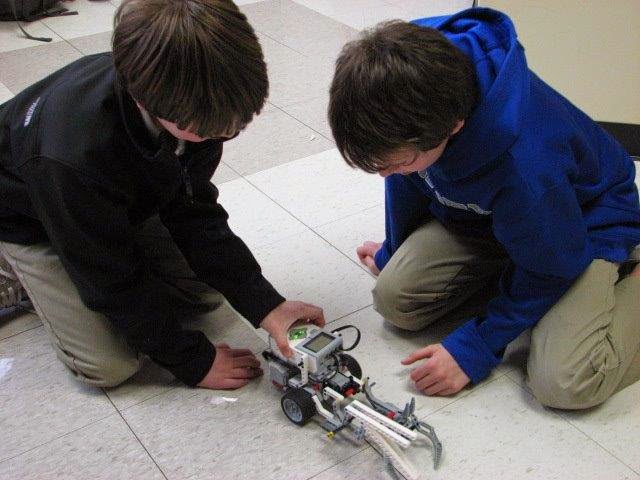Helping Educators Teach for a Sustainable Future
 “Empowering Young
Citizens for Sustainable Communities” is the theme for the 2015 Sustainability
Institute for P12 Educators
“Empowering Young
Citizens for Sustainable Communities” is the theme for the 2015 Sustainability
Institute for P12 Educators “Many schools and businesses introduce initiatives like recycling bins or low flow facilities, but then continue other unsustainable practices like disposable pod coffeemakers, excessive photocopying, or even driving kids a half mile to school,” said Lori Diefenbacher, co-coordinator and founder of the event, and adjunct faculty member in the School of Education. “This is because people aren’t really thinking about the reasons behind the initiatives, nor were they involved in the decision-making. Our Institute will not only present hot topics for education for sustainability, but will suggest ways that educators can help transform young thinkers to be part of community decision-making and improvement projects.”
The three-day workshop will cover topics such as:
- Tuesday, June 23 - Defining Sustainability Citizenship: What does it mean to be a citizen in today’s world? Participants will explore this question on multiple scales, ranging from local to global, through the lens of sustainability. Through speakers and hands-on workshops, registrants will be introduced to Citizen Science, which is rooted in place-based learning.
- Wednesday, June 24 - Connecting to the Community: How can teachers facilitate a connection between students and the community that result in real action on a local issue? Registrants will join forces to collectively develop new strategies and activities for designing real-world participation in community issues. Attendees will then learn about organizations within the community during the afternoon Resource Fair.
- Thursday, June 25 - Learning from Others: Participants will choose one area of focus to study in depth with others on the third day of the Institute. Trainings by Project Learning Tree and Frog Watch will be offered (some with Certification); each attendee will select one.
The event is hosted by Webster
University, School of Education; EarthWays Center of the Missouri Botanical
Garden; Green Schools Council of Madison County, Illinois; US Green Building
Council–Missouri Gateway Chapter; Saint Louis Zoo, Education Division and Mary
Institute and St. Louis Country Day School.
“In 2010 when I first had the idea of the Institute, I knew that I needed to involve community partners,” said Diefenbacher. “This has been the key to our success. We now represent six different institutions and each agency brings a different perspective and expertise to the table, and our diversity assures that the event itself will be sustainable, because its success does not depend on any one person or institution.”
The Sustainability Institute for P12 Educators costs $150 and includes sustainable breakfasts and lunches. Scholarships are available for those meeting the criteria. Graduate credit is also available. For more information or to register online, visit the event website.
This article originally appeared on: http://www.webster.edu/news/2015/news/06162015-sustain-educate.html
“In 2010 when I first had the idea of the Institute, I knew that I needed to involve community partners,” said Diefenbacher. “This has been the key to our success. We now represent six different institutions and each agency brings a different perspective and expertise to the table, and our diversity assures that the event itself will be sustainable, because its success does not depend on any one person or institution.”
The Sustainability Institute for P12 Educators costs $150 and includes sustainable breakfasts and lunches. Scholarships are available for those meeting the criteria. Graduate credit is also available. For more information or to register online, visit the event website.
This article originally appeared on: http://www.webster.edu/news/2015/news/06162015-sustain-educate.html




.jpg)
